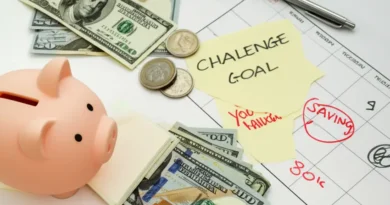Should You Take Out a Personal Loan to Pay Off Debt?
Debt can be a hefty burden on anyone’s shoulders, often leading to sleepless nights and a constant feeling of financial strain. When faced with overwhelming debt, many people wonder whether they should consider taking out a personal loan to help pay it off. To navigate this question, let’s delve into the benefits and drawbacks of using personal loans as a debt management strategy.
Personal loans, typically unsecured, allow borrowers to consolidate high-interest debt into a single payment with a fixed interest rate. This approach may seem appealing at first glance, as personal loans may offer lower interest rates compared to credit cards, making it easier to manage payments over time.
Before making a decision, it’s essential to evaluate your current financial situation. Are you struggling with multiple credit card debts, each accruing high-interest rates? If so, taking out a personal loan could eliminate the hassle of juggling multiple payments and potentially lower your overall interest rate. By consolidating your debt, you might also improve your credit utilization ratio, which may positively impact your credit score.
However, personal loans are not a one-size-fits-all solution. Here are several factors to consider before choosing this route:
- Interest Rates: While personal loans can offer lower rates than credit cards, they may still be higher than other debt solutions. Always shop around for the best rates before committing to a lender.
- Fees: Some personal loans come with origination fees, which can increase the overall cost of borrowing. Make sure to review the total cost of the loan, not just the interest rate.
- Repayment Terms: Understand the repayment terms of the loan. A longer repayment period may make for lower monthly payments, but it could also mean paying more interest over the life of the loan.
- Financial Discipline: Taking a personal loan can be counterproductive if you racking up more debt in the process. It’s crucial to create a solid budget and stick to it to avoid falling back into debt.
Another essential aspect to consider is your credit history. If your credit score is below average, you might not qualify for the best interest rates, which may impact the benefits of taking out a personal loan. In some cases, those with poor credit might do better looking for alternate solutions, like credit counseling or negotiating with creditors.
If you decide that a personal loan is the best course of action for your financial situation, here are some steps to follow:
- Analyze Your Debt: List out your debts, total amount owed, and their interest rates. This will help you determine if consolidating with a personal loan will save you money.
- Compare Lenders: Research various lenders to find the best rates and terms. Don’t forget to check if your bank or credit union offers personal loans, as they often provide better rates for existing customers.
- Pre-qualify: Consider pre-qualifying for a personal loan, which allows you to check your potential loan offers without impacting your credit score.
- Read the Fine Print: Ensure you understand all the terms and conditions attached to the loan, including any fees and penalties related to late payments.
- Make a Plan: Create a budget for how you’ll repay the loan. Include all your monthly expenses to avoid any financial surprises in the future.
In conclusion, taking out a personal loan to pay off debt can be effective for some individuals, especially if utilized wisely. A clear assessment of your financial situation, diligent research, and a solid repayment plan can set you on the right path towards financial freedom. By consolidating your debt through a personal loan, you could simplify your payments and potentially improve your financial health. However, it’s crucial to weigh the pros and cons and make an informed decision that aligns with your long-term financial goals.




